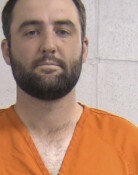[Editorial] Deception by Korea`s 3 Major Networks
[Editorial] Deception by Korea`s 3 Major Networks
Posted July. 01, 2009 05:27,
Rampant bias and unfair reporting by news programs on public broadcast networks are turning from bad to worse. A pan-national rally was hosted June 10 by leftist groups against the Lee Myung-bak administration at Seoul Plaza to mark the 22nd anniversary of the 1987 pro-democracy movement. The illegal gathering saw protestors bring urban traffic to a standstill by occupying the nearby Taepyeong-ro street. The day after the rally, evening news programs of the three major networks KBS, MBC and SBS reported in unison that police caused a stir by suppressing demonstrators through violence, beating protestors. The textual headlines for anchors had instigative wording, with one on MBC saying, (police) randomly beat protestors with shields.
KBS TV 9 oclock news showed a riot guard beating a protester in the head while trying to dismiss demonstrators, saying, (A protestor) instantly collapsed to deliver news in an instigative manner. Additionally, the report carried an interview with a self-claimed victim who said, All of sudden, so many people (riot police) bulldozed us using shields and stepped on us. On the same day, MBCs News Desk primarily covered police suppressing demonstrators, repeatedly calling participants in the illegal rally, including habitual protesters, citizens. Leftist online media also carried a similar tone as if to back up the broadcasters. Looking at these news reports only, one could end up believing that police brutally beat up innocent citizens as truth.
Video footage recorded and released by Seoul police shows a different picture, however. The footage displayed protesters using excessive violence against police and masked demonstrators beating guards, spraying chemicals in the face, and punching officers who were trying to restore traffic order. Following the demonstration, 15 policemen suffered injuries inflicted by demonstrators and were hospitalized. It was difficult to tell who used more violence, police or demonstrators. Broadcasters, however, carried news reports showing only one side of the rally. After the news reports were aired, the Web sites of the three networks had a flurry of posts, with one reading, President Lee Myung-baks hunting dogs did a good job. Another said, Police are no different from gangsters. Had the broadcasters aired reports suggesting that police also suffered from violence by the demonstrators, viewers would have a different reaction.
This is an era when people can easily make wrongful judgments and hardly learn the truth if they watch TV news only. This incident alone justifies the need for the National Assembly to pass the media revision bill in its extra session that began in June. By enacting laws liberalizing the broadcast industry, Korea can allow broadcasters with different perspectives and viewpoints to enter a leftist-dominated sector and allow viewers to learn truth.







